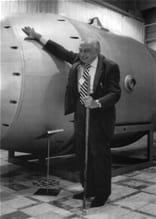There’s been an unusual opportunity over the last few weeks for scientists (and even some science policy buffs) to get involved in some practical efforts at science policy making. I am talking about the recent eruption of scientific political consciousness over expected cutbacks in government investment in research. Apart from the usual pronouncements from the Royal Society, anguished Vice-Chancellors and the like, there’s been a well aimed campaign from CaSE (Campaign for Science and Engineering) and a grass-roots movement ‘Science is Vital’.
The latter two are currently working together to organise a petition (26 000 signatures so far and still open for signing); held a rally in Whitehall (with STS and ex-STS participants –observers): and on Tuesday 12 October a mass lobby of Parliament. The activity itself is remarkable: veterans say it hasn’t happened since the ‘Save British Science’ movement, provoked by Mrs Thatcher’s cuts (and worse, her disrespect) in the nineteen-eighties. What I find interesting about the current campaign is that there is a glimmer of something more than affronted scientists fighting to preserve science’s authority and argue its benefits. I detect more of a political consciousness: science, especially after the investment of the past decade or more, recognises itself as an industry, that like other industries can be a political force. There is a new meaning to ‘the Science Vote’. Is this the ultimate manifestation of ‘epistemic drift’, following from Relevance, Accountability, Impact and all that? Or is the prospect of cuts and resulting campaign just a boundary object that enables a temporary alliance with science-based industry, and charitable funders reliant on a science budget subsidy, and politicians needing a cause to fight for, but with each component retaining its own unadulterated identity. Can the historians of science tell us if it was like this in the eighties – for example was the support of industrialists (as well as Nobelists) as important then as it is today?
Meanwhile, some links for the curious
http://www.sciencecampaign.org.uk
http://blog.sciencecampaign.org.uk
www.scienceisvital.org.uk
http://scienceisvital.org.uk/sign-the-petition/
Declaration of interest: I am a member of the CaSE Executive Committee
Norma Morris
 Close
Close



